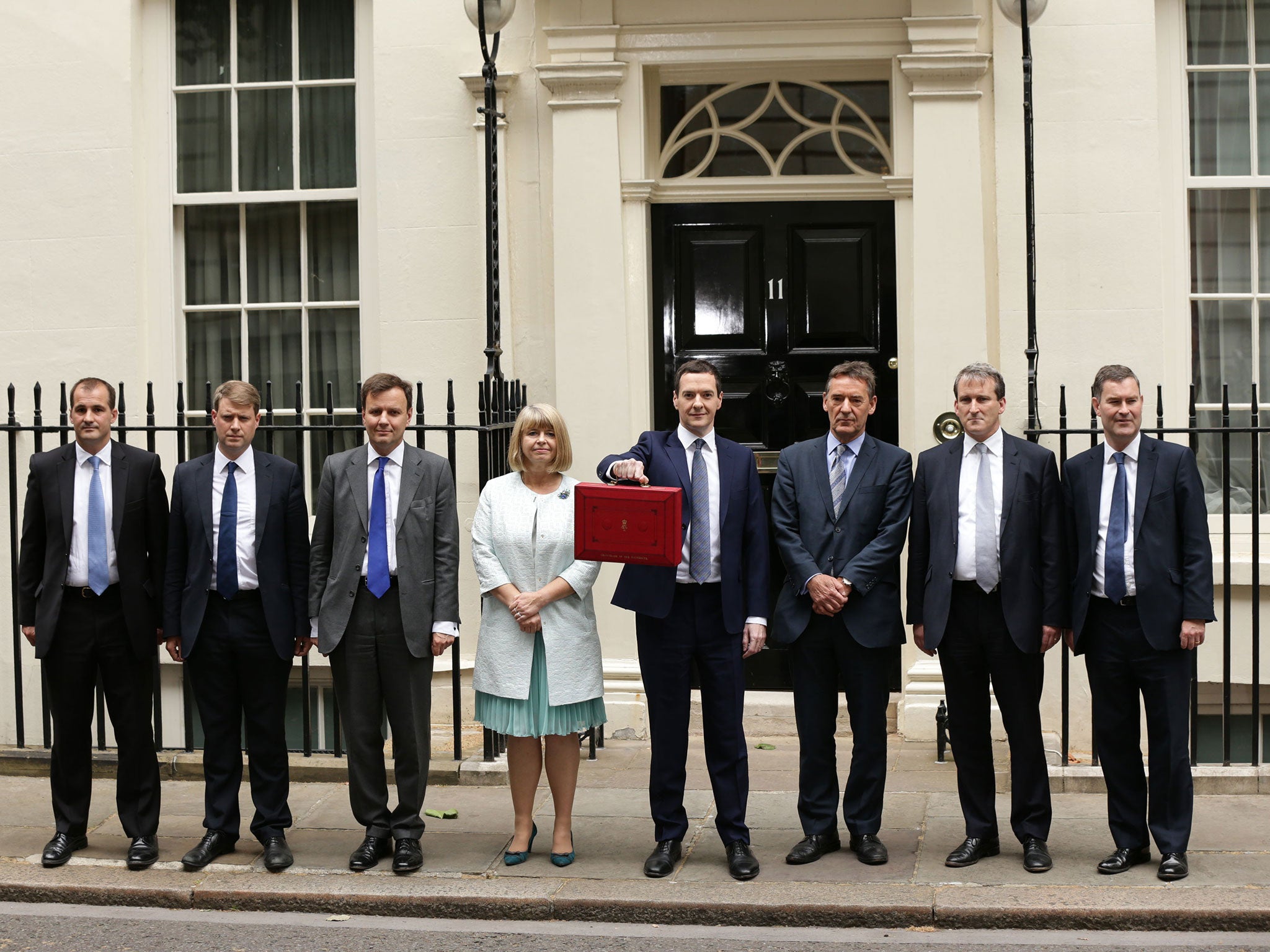Budget 2015: Osborne’s living wage will leave 60,000 people without jobs, OBR says
The increase in the cost of wages for businesses will lead to cuts in hours available

Tens of thousands of people lose their jobs because of Osborne’s decision to introduce a living wage on top of the minimum wage.
That’s the view of the Office for Budget responsibility, an independent body that released a huge report on the state of the UK economy to coincide with the Budget.
Osborne has said that six million people will see their pay rise as a result.
But the increase in the cost of wages for businesses will lead to cuts in hours available of 0.4 per cent – resulting in 60,000 lost jobs, according to the OBR. Those cuts will hit people in lower paid jobs the hardest.
The reduction in total hours worked per week will be 4 million in the UK – simply because it will cost employers more to pay Osborne’s living wage.
The Living Wage Foundation, which currently sets its own living wage based on the cost of living throughout the UK has also approached Mr Osborne's announcement with scepticism. The Foundation's living wage is currently £7.85 an hour and £9.15 an hour in London. It is likely to rise next year as living costs continue to increase.
The change the living wage is connected to the Chancellor’s austerity policies, according to Simon Wren-Lewis, Professor of Economic Policy at the University of Oxford.
“The Chancellor gave the need to move to budget surplus as a key motivation for cutting tax credits, and those cuts undoubtedly inspired his surprise increase in the minimum wage which the OBR think will cost 60,000 jobs,” he said.
Businesses have accepted the change, according to the Institute of Directors.
Simon Walker, Director General of the Institute of Directors, said that introducing a national living wage at a significantly higher level than the minimum wage was a dramatic announcement, but in return, companies have been provided with a cut to corporation tax and an increase in the employment allowance.
"We should not understate the boldness of this move, and many businesses will have been taken by surprise, but the IoD accepts that after several years of slow wage rises, now is the time for companies to increase pay," he said.
Join our commenting forum
Join thought-provoking conversations, follow other Independent readers and see their replies
Comments
Bookmark popover
Removed from bookmarks